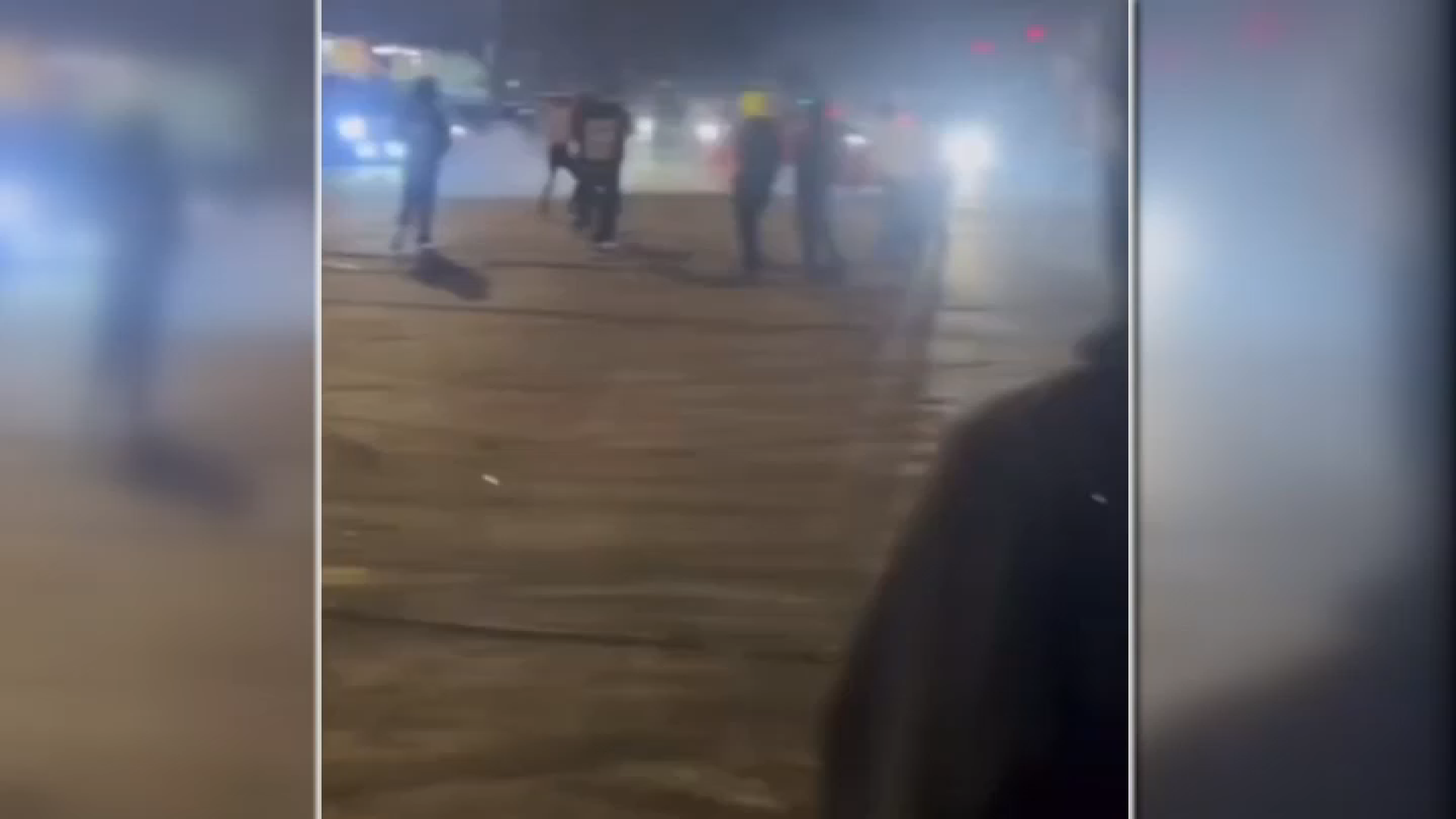What to Know
- Gabriel Fernandez, 8, died after suffering from what the defendant's attorney describes as "unspeakable acts of abuse"
- Prosecutors are seeking the death penalty against Isauro Aguirre, the boyfriend of Gabriel's mother
- The child's mother will be tried separately
One-time co-workers of a Palmdale man convicted of the torture-murder of his girlfriend's 8-year-old son testified Monday that the man they knew was compassionate, kind and worth saving rather than condemned to death.
"He was extremely kind and sensitive and careful," Sherline Miller told the seven-woman, five-man jury that convicted Isauro Aguirre, a 37-year-old former security guard, of first-degree murder on Nov. 15 for the death of Gabriel Fernandez.
Jurors also found true the special circumstance allegation of murder involving the infliction of torture, making Aguirre eligible for capital punishment. The boy's 34-year-old mother, Pearl Sinthia Fernandez, is awaiting trial separately for the boy's killing in May 2013.
She, too, could face the death penalty if convicted. Aguirre was a driver at a Woodland Hills assisted-living facility. Miller, an activities director, worked with him there for a little more than a year.
"He never rushed anyone ... he was really, really patient," Miller told jurors tasked with recommending whether Aguirre should be sentenced to death or life in prison without the possibility of parole. Aguirre later worked in the same facility as a care provider and then in the medications room, and Miller said she never heard any complaints about his work.
When Miller read about Aguirre's arrest, she was "shocked. I had to read the article several times. I could not believe it."
Defense attorney John Alan asked Miller if, given all the "terrible acts of abuse" Aguirre had committed against the victim, there was "still some good within him worth saving?" Miller replied, "Yes I do, because I remember who he was and how he treated people. His compassion."
Deputy District Attorney Jonathan Hatami challenged Miller during cross- examination.
"Maybe Isauro Aguirre had two faces and you didn't really know him?" Hatami asked. Miller replied, "I do think I knew him. I don't think he faked his behavior ... Nothing will change my mind."
Mayra Castillejo also worked with Aguirre at the Woodland Hills care facility and testified about his interactions with patients. "He would bathe them, feed them ... would move them from the wheelchair to the toilet ... He would speak to them very respectfully," Castillejo testified through a Spanish interpreter. "The elderly would even speak to him about their personal problems because they felt lonely."
News
Top news of the day
The two also had a relationship outside of work and knew each other's families. Castillejo attended Aguirre's sister's wedding. Castillejo characterized the relationship as a friendship, but admitted under cross-examination that she once kissed Aguirre.
Hatami quizzed her about Aguirre's angry, jealous reaction when he learned she was interested in another man. Castillejo -- who is now married with three children -- said Aguirre began obsessively calling several times a day, asking how she was and what she was doing, but said he never threatened or frightened her.
Asked the same question about whether Aguirre was worth saving, Castillejo replied, "Yes ... for the person I got to know before. And because I know it's possible that there is still some humanity in him."
The final prosecution witnesses last week included Gabriel's uncle, Christopher Contreras, who said he still remembers the way his nephew looked in the hospital whenever he thinks about the boy.
In emotional testimony, the military veteran said he had "seen some bad stuff in war," but what his nephew went through "makes it nothing."
"No matter how hard I try, that's how I remember Gabriel now," he testified. Contreras said the decision to have the boy cremated was made because he did not think anybody else should have to go through seeing the child "like that."
Jurors have seen photos of Gabriel's battered body lying on an autopsy table with injuries from head to toe and heard testimony from a medical social worker and sheriff's deputy that the injuries-- including burns, broken ribs, a fractured skull, missing teeth, multiple BB gun shots -- were the worst child abuse they had ever seen.
Contreras told jurors that he and his wife have adopted two of Gabriel's siblings, who experience feelings of guilt about what happened to their younger brother.
"It's almost a bad thing to say Gabriel's name because of the way the kids react ... Anything brings it up and there are setbacks," he said.
The victim's older brother and sister were not called to the stand during the trial's penalty phase, but both testified Oct. 18 during the guilt phase of trial about the abuse Gabriel suffered.
His brother, Ezequiel, told jurors his sibling was forced to eat cat litter and cat feces, was repeatedly beaten in the month's leading up to his death and was frequently kept in a "box" in the bedroom occupied by his mother and Aguirre. The boy's sister, Virginia, broke down in tears when she was shown a photo of Gabriel.
She testified that her mother and Aguirre had called the boy gay. Deputy District Attorney Scott Yang told jurors in his opening statement in the penalty phase that Aguirre deserves "nothing less than death."
He told jurors that Gabriel was "tortured" like a prisoner of war for eight months, during which he was repeatedly beaten by his mother's boyfriend. Defense attorney Michael Sklar countered that his client is "simple," "slow" and "easily led" and that "there are reasons to spare his life."
Gloria Nieves -- who operates a store across the street from where Aguirre had lived with his parents and two of his sisters in Canoga Park -- told jurors that she was very surprised to hear about the case against him. She described him as "very well-mannered" and "respectful to others," and said he made sure no cars were coming when children crossed the street to get to her business.
"Do you believe that Isauro Aguirre is inherently evil?" Alan asked. "No," she responded.
"Do you believe that Isauro Aguirre is good by nature?" the defense attorney asked.
"Yes," she answered.
Another witness, Los Angeles Unified School District employee Elias Juarez, testified that district records for Aguirre indicate he was held back in the ninth and 11th grades and that he was 19 years old by his second attempt to complete his junior year in high school.
He said the records indicated that Aguirre was in an English as a Second Language curriculum as a seventh- and eighth-grader, and that there was no documentation that Aguirre ever graduated.
Testimony is expected to wrap up Thursday, with jurors expected to hear closing arguments Dec. 11 before being asked to recommend to Los Angeles Superior Court Judge George G. Lomeli which sentence Aguirre should face for the boy's killing.
Los Angeles County Fire Department personnel went to the family's home in the 200 block of East Avenue Q-10 in Palmdale on May 22, 2013, in response to a call that Gabriel was not breathing.
He was declared brain-dead that day and taken off life support two days later. Aguirre and Fernandez have been jailed without bail since being charged in May 2013 with the boy's death.
The two were subsequently indicted by a Los Angeles County grand jury. Two former Los Angeles County social workers -- Stefanie Rodriguez and Patricia Clement -- and supervisors Kevin Bom and Gregory Merritt are awaiting trial on one felony count each of child abuse and falsifying public records involving the boy.



